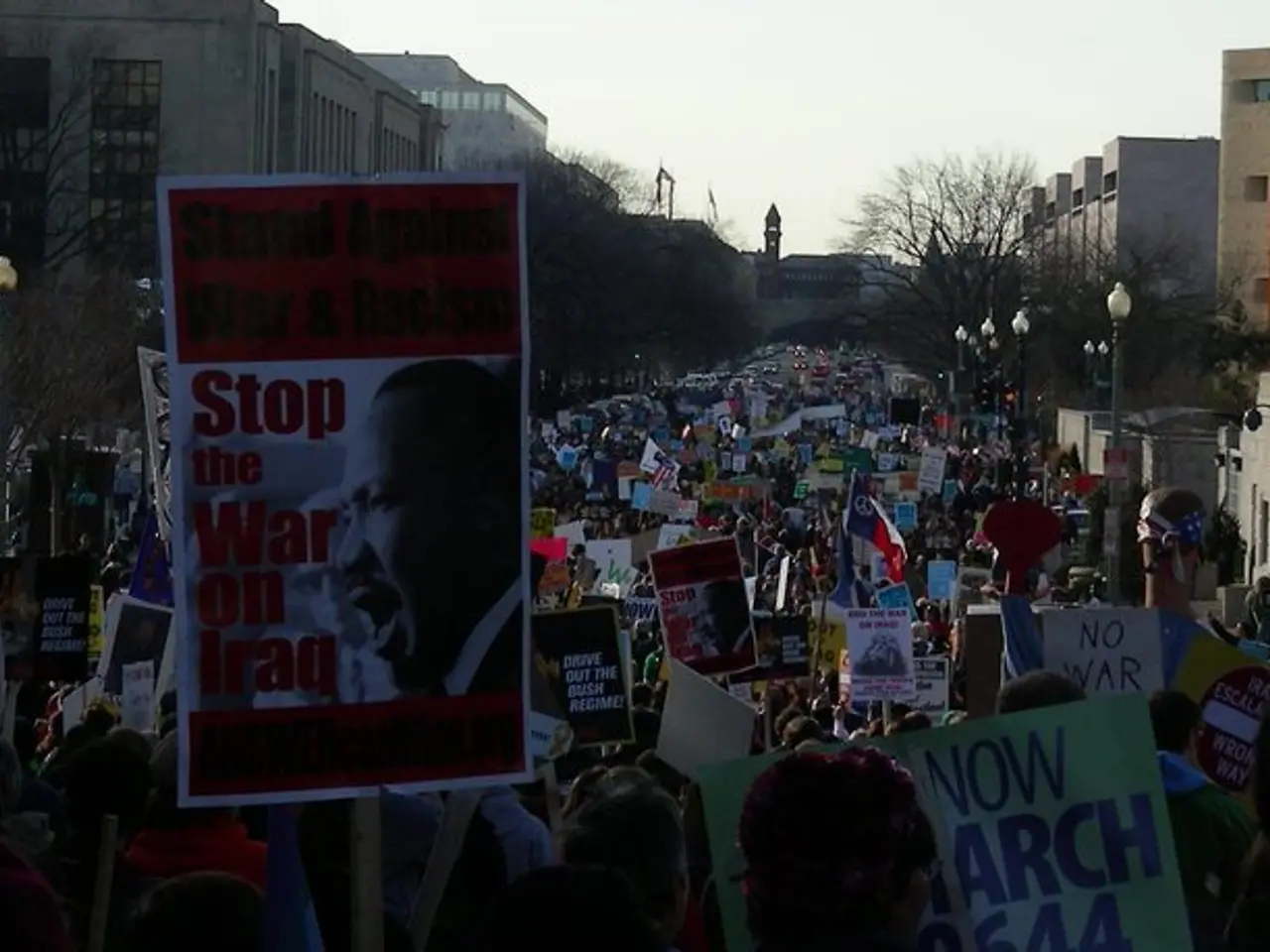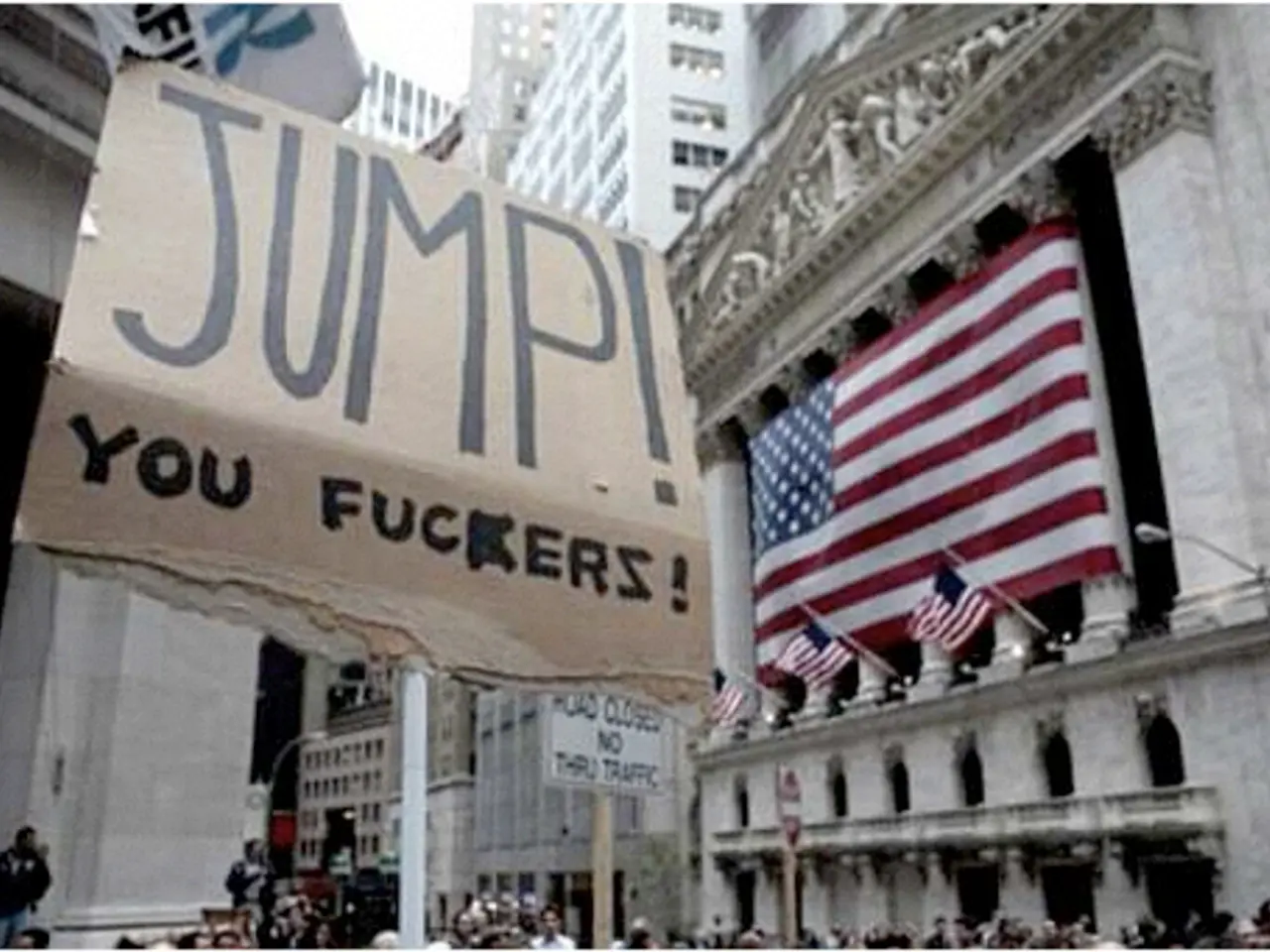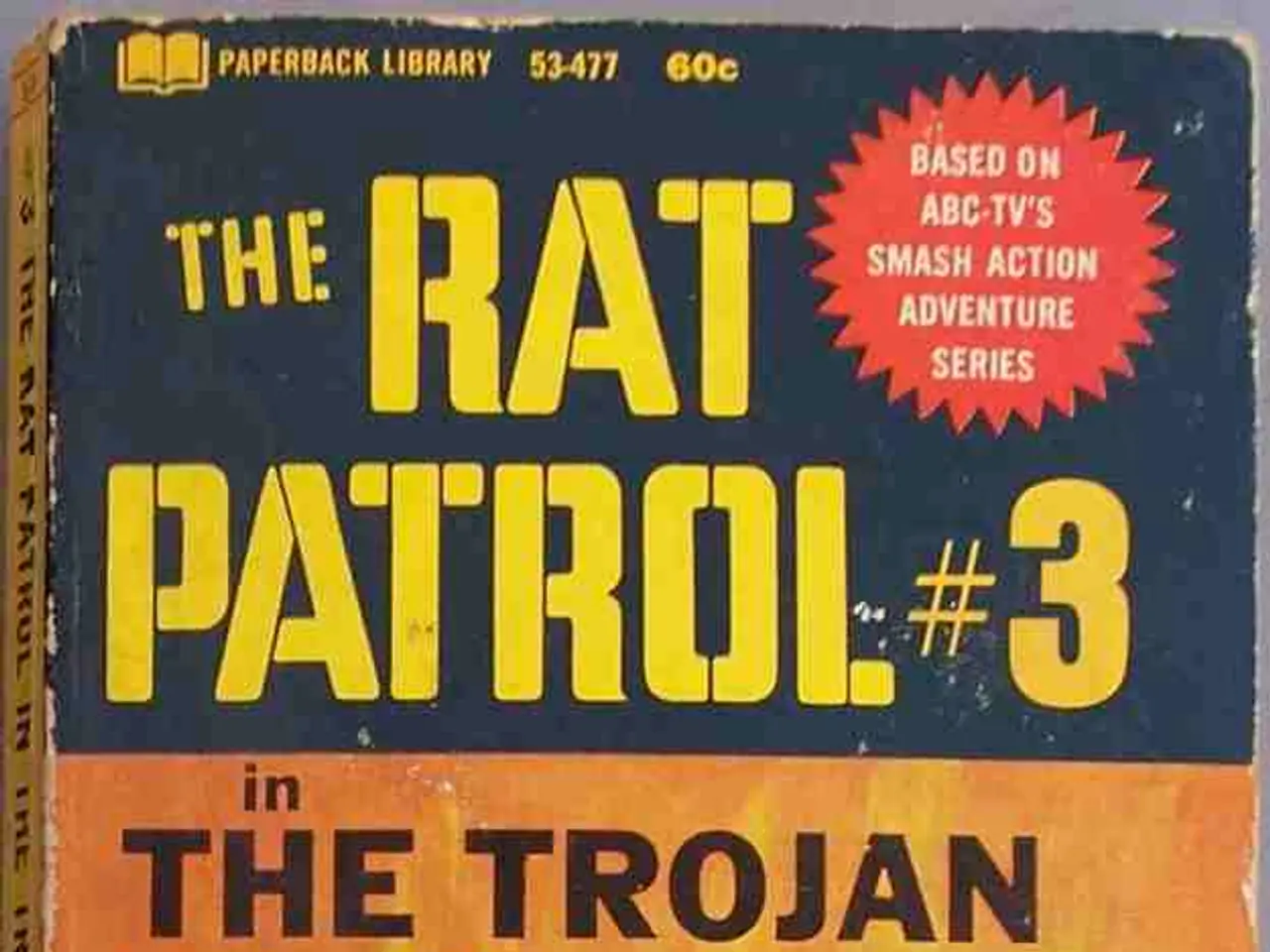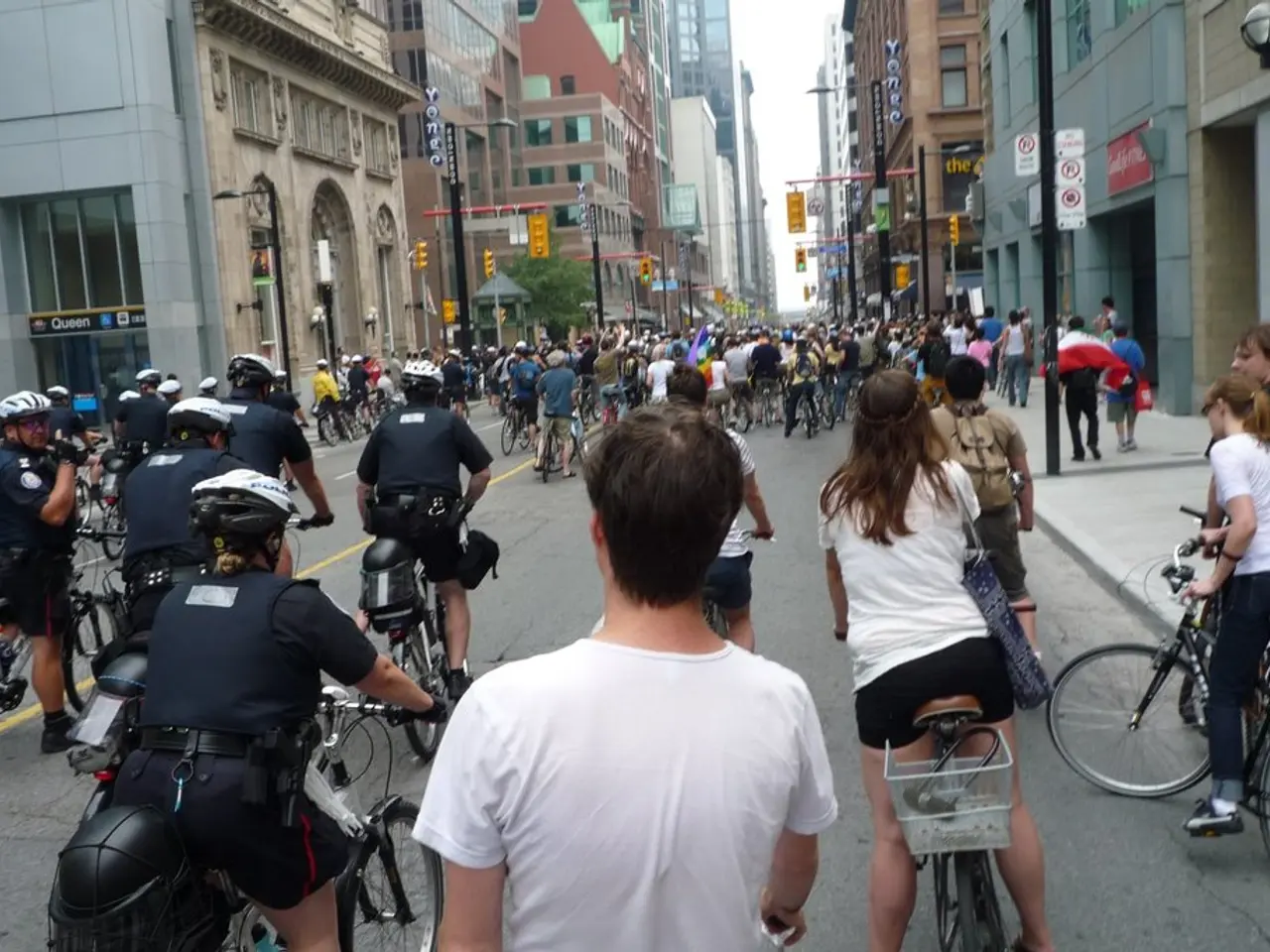Suppression of dissent through severe legal measures threatens to undo recently gained liberties
In recent developments, Kenya's criminal justice system has been under the spotlight due to its approach towards religious extremism and dissent. This scrutiny comes in the wake of harsh legal measures being used in counterterrorism cases, particularly at the Kahawa Law Courts.
This week, dozens of individuals were charged with terrorism-related offenses following the June-July protests. Among them were the Mawego 8, a group consisting of boda boda riders and fishermen, who were charged with arson. They have denied the charges, but their high bail amounts, which are difficult for them or their families to raise, have led to prolonged detention while they await revisions.
In a separate case, former army and police officers Patrick Osoi and Jackson "@CopShakur" Kuria were charged with preparing to commit a felony and possessing a firearm. They have been detained until next week when Principal Magistrate Richard Koech makes a ruling on their bail application.
Both Osoi and Kuria are self-proclaimed members of the Fighting Brutality and Impunity (FBI) lobby group, known for their active condemnation of extrajudicial killings, enforced disappearances, and police brutality on social media platforms.
The amendments made to the Prevention of Terrorism Act have given sweeping powers to the National Intelligence Service and counterterrorism agencies. These amendments allow NIS officers to search, seize, and detain suspects, undertake any covert operation, or neutralise any threat. However, critics argue that these measures have led to the criminalization of dissent and the misuse of counterterrorism laws to silence critics and protesters rather than effectively addressing religious extremism.
The Law Society of Kenya (LSK) has condemned the misuse of the Prevention of Terrorism Act (POTA) by prosecutors and the judiciary, emphasizing that terrorism charges must be backed by clear and compelling evidence of intent and planning, which is often lacking in the cases against protesters and dissenters.
A report by the Supreme Council of Muslims (SUPKEM) sheds light on this issue, detailing the circumstances surrounding the extra-judicial killing of 23 victims in 2020. The report suggests that injustice rather than ideology drives extremism, warning that the justice system, by punishing dissent harshly, risks exacerbating feelings of marginalization and grievance rather than fostering community safety.
The pattern of unidentified men mounting surveillance, raiding homes, mosques, or residential neighborhoods, extracting their victim before killing and dumping their bodies, is similar in many of these cases. This trend, coupled with the harsh legal measures being used, has led to concerns about the criminalization of dissent and misuse of counterterrorism laws.
In conclusion, Kenya's response to religious extremism and dissent involves aggressive counterterrorism prosecutions, but these actions face criticism for conflating dissent with extremism and for employing disproportionate legal strategies that may undermine rights and freedoms under the guise of security measures. It is crucial for the justice system to ensure that its actions are fair, proportionate, and effective in addressing genuine threats, while also protecting the rights and freedoms of all citizens.
[1] The Star, "Mawego 8: Cash bail of Sh50,000 too high for boda boda riders," 12 August 2021, https://www.the-star.co.ke/news/2021-08-12-maweg... [2] The Standard, "Law Society of Kenya condemns misuse of POTA," 13 August 2021, https://www.standardmedia.co.ke/article/3001385... [3] The Nation, "Supkem report: Injustice, not ideology, drives extremism," 14 August 2021, https://www.nation.co.ke/news/supkem-report-inju... [4] The Daily Nation, "Kenya's counterterrorism measures under fire for criminalizing dissent," 15 August 2021, https://www.nation.co.ke/news/kenya-s-counterte... [5] The East African, "Kenya's counterterrorism measures under fire for criminalizing dissent," 16 August 2021, https://www.theeastafrican.co.ke/news/east-afr...
- Despite the ongoing scrutiny of Kenya's criminal justice system regarding its handling of religious extremism and dissent, the amendments made to the Prevention of Terrorism Act have also brought general-news topics into focus, such as sports, politics, and policy-and-legislation, with critics claiming that these counterterrorism laws are unjustly used to silence critics and protesters, including those voicing concerns through epaper outlets like The Star, The Standard, The Nation, and The East African.
- Amidst the ongoing debate over Kenya's counterterrorism measures, there has been a growing concern among sports enthusiasts that, in addition to political dissent, the broader scope of the Prevention of Terrorism Act could potentially impact the sports world, potentially curtailing the freedom of expression of athletes, coaches, and fans, who may voice opinions on policy-and-legislation matters related to sports, such as funding, infrastructure, and anti-doping policies.








